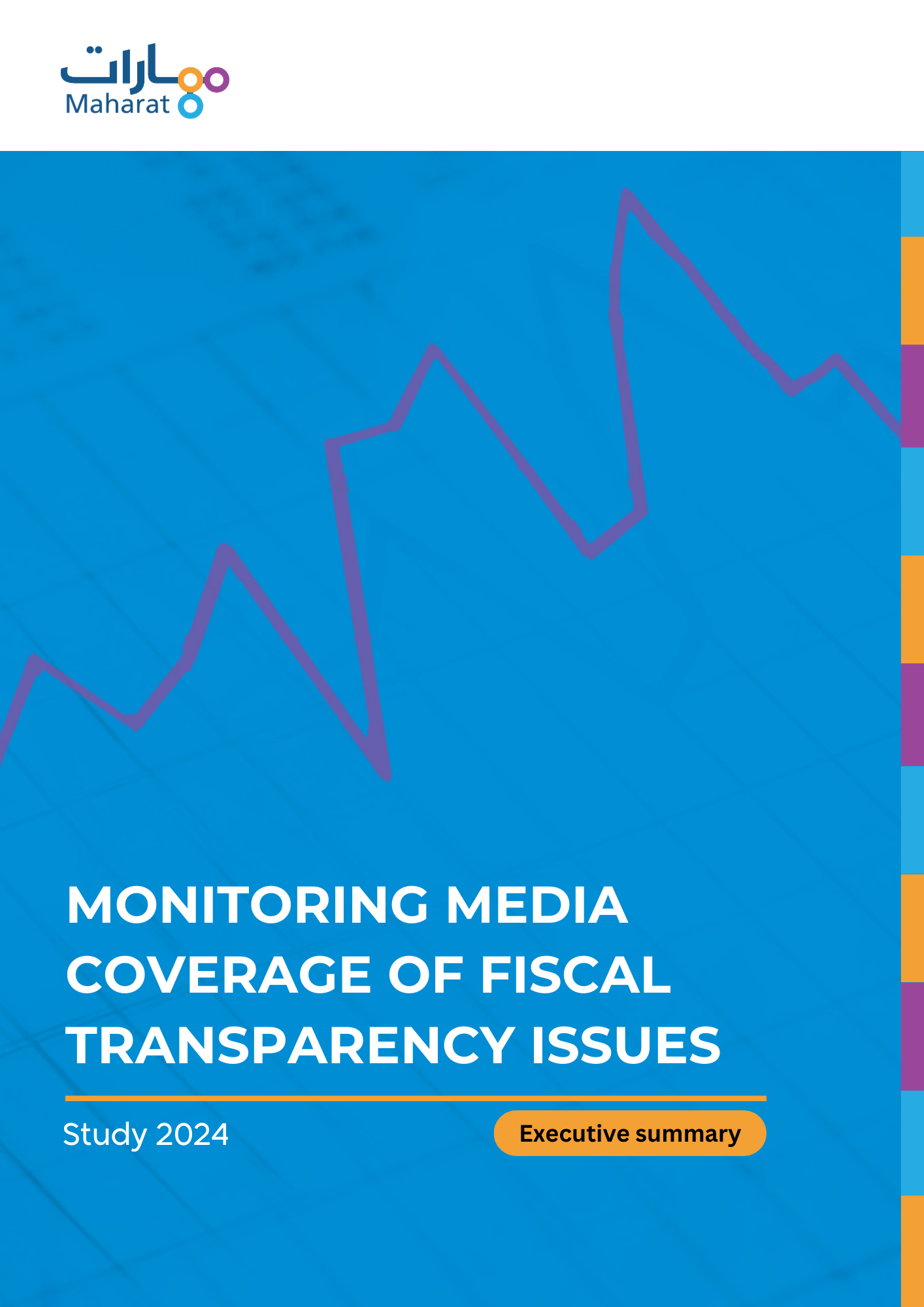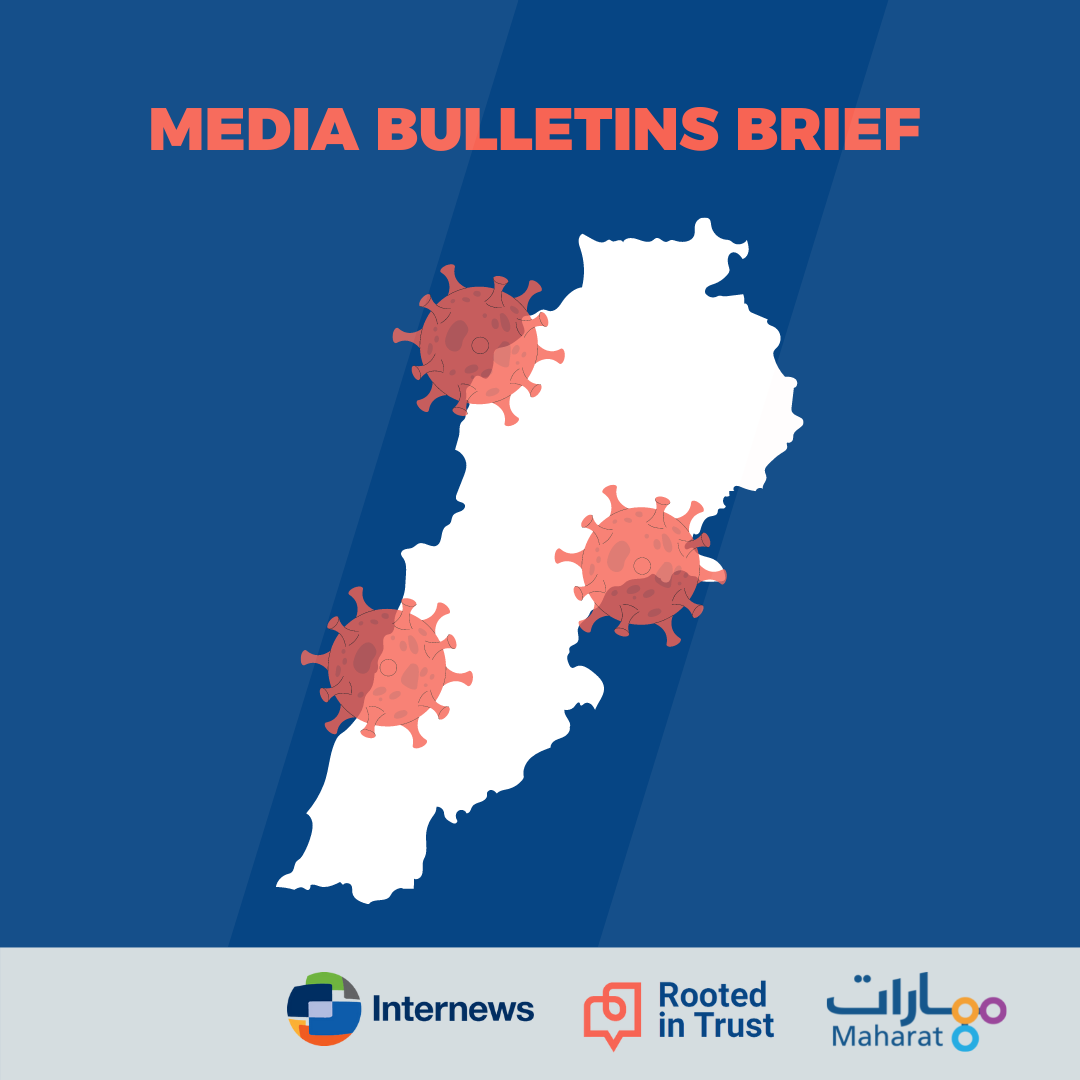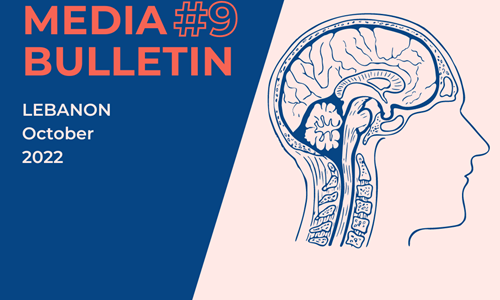
Monitoring Media Coverage of Fiscal Transparency Issues
The study "Monitoring Media Coverage of Fiscal Transparency Issues," conducted by Maharat Foundation, gathered media coverage on topics related to fiscal transparency. This included public finances and the state budget, public tenders and government contracts, oversight of public spending, financial and reform plans, and financial management of the Central Bank of Lebanon.
This study is based on the premise that fiscal transparency aims to serve the public interest and enhance good governance by providing detailed and clear information on the collection and expenditure of public funds and the management of public financial management. It is also based on the consideration that the media play a crucial role in promoting financial transparency and holding the executive and legislative branches accountable by providing essential and necessary information to monitor government actions, enlighten public opinion, evaluate overall performance, and expose illegal practices.
Media were monitored over a two-month period (December 2023 and January 2024), involving 4 local newspapers and 6 television channels. The study aimed to analyze their coverage of issues concerning public finances and the application of fiscal transparency principles in addressing these issues.
The monitored period included several significant financial events such as budget discussions and approval in Parliament, economic reform plans, and the approval of the social security and retirement law, directly related to public finances. Budget discussions, lasting several days in Parliament, received the most coverage due to their political, social, and economic significance.
According to the study, 164 news reports on fiscal transparency issues were monitored in evening television news bulletins, while the monitored newspapers covered the same topic with 131 articles. Specifically, 46 television news reports (28%) explicitly or implicitly referenced fiscal transparency requirements, compared to 55 newspaper articles (42%).
Based on the monitoring results, media coverage varied significantly depending on editorial policies and current events. Television channels prioritized live coverage and daily updates, accounting for 75% of the coverage on public finances and the state budget, largely due to their coverage of budget discussions in Parliament. In contrast, press coverage focused more on financial reform plans, public tenders, and government contracts, receiving higher percentages of coverage.
Television news predominantly featured news reports (83%) with a lack of investigative journalism and interviews. In contrast, press coverage consisted mostly of news reports (83%), followed by investigative reports (9%), opinion articles (6%), and interviews (2%).
Regarding the tone of news coverage, a neutral tone prevailed in television news (60%), with accusatory tones at around 28%. In newspapers, neutrality decreased to 38%, while accusatory tones increased to 37%, and skeptical tones reached 16%.
The study shed light on the main actors who significantly influence or shape public policies. Members of Parliament topped both television and press coverage at 47% each, followed prominently by government officials and officials from the Central Bank of Lebanon. Official authorities dominated television coverage (87%), while the private sector was only represented in around 13% of the coverage. Similarly, in terms of press coverage, the private sector appears as a main actor only in 12% of the coverage.
In terms of gender distribution, the main actors in television news broadcasts were overwhelmingly male, with 94% of coverage featuring male actors, while women were nearly absent, accounting for only 1%. Similarly, in press coverage, women were featured as main actors in only 3% of the coverage, compared to 84% for men.
Regarding journalistic practices, despite the importance of relying on credible and specialized sources, the analysis of television news coverage on fiscal transparency issues revealed that 90% of the coverage lacked specific sources while only 10% of television news stories cited specific sources. In contrast, press coverage showed a slightly higher reliance on sources at 15%.
Radio and television talk shows featured diverse opinions, shedding light on multifaceted dimensions of financial issues. These discussions often highlighted gaps in laws or proposed necessary reforms, giving voice to actors beyond the main political figures, and serving as an important forum for deeper legislative understanding. These programs enhanced concepts of participation, discussion, and public education.
The study concluded that Lebanese media often prioritize political issues over economic ones, despite the pivotal role of economics in governance and societal well-being. Economic issues, crucial for citizen livelihoods and social development, have gained more importance amid Lebanon's ongoing economic crisis, currency inflation, and banking sector collapse. However, recurrent political and security crises frequently divert attention back to political matters.
Consequently, media outlets have the potential to significantly contribute to highlighting economic issues, governance matters, and monitoring public financial management through coverage of fiscal transparency and holding government and parliament accountable. Alongside citizens, civil society organizations, activists, and intellectuals, media can play a crucial role in enhancing transparency and accountability in public financial management programs and decisions.
To read the executive summary:





